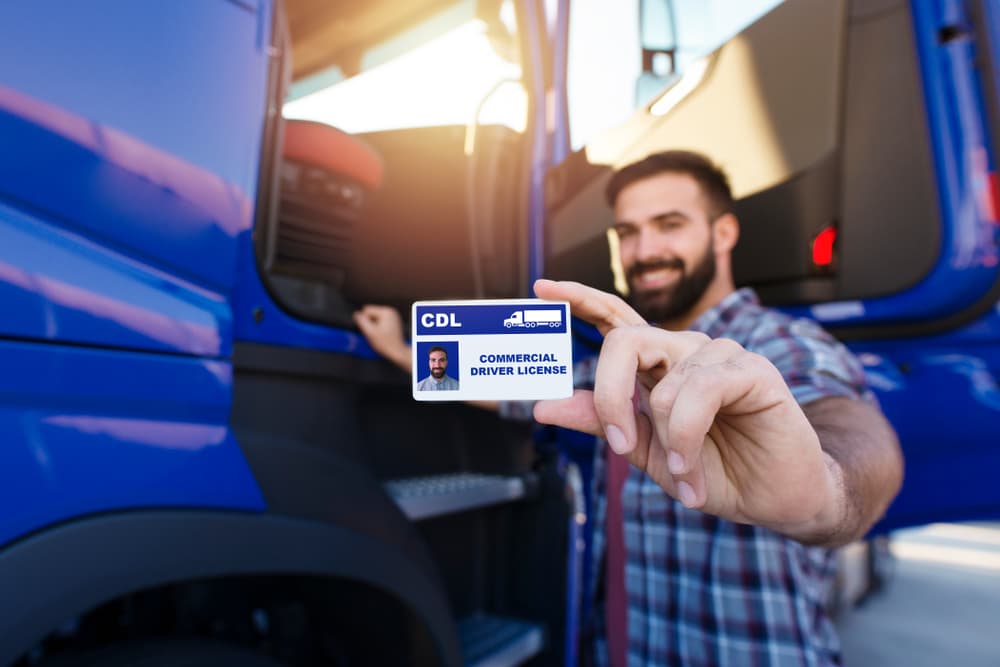
Appealing a Suspended CDL in New York
Suspension of a commercial driver’s license (CDL) in New York can have severe consequences for those who rely on their CDL for their livelihood. Understanding what a CDL suspension entails, the common reasons for suspension, and the process of appealing a suspended CDL in New York is crucial for drivers facing this situation.
The following is a look at the process of appealing a suspended CDL in New York, including the importance of appealing, common reasons for suspension, and steps to appeal. You’ll also learn about the possible outcomes of the hearing and the role a skilled New York license suspension DUI defense attorney can play in increasing your chances of getting back your CDL.
Schedule a Free Initial Consultation Today!
What is a CDL Suspension?
A CDL suspension occurs when the New York Department of Motor Vehicles (DMV) revokes a commercial driver’s license for violations or other reasons outlined in state laws and regulations. When a CDL is suspended, the driver can’t operate commercial motor vehicles (CMVs) for a specified period. This suspension can significantly impact employment, income, and daily life.
The Importance of Appealing a Suspended CDL in New York
Appealing a suspended CDL in New York is crucial for several reasons. The most important, of course, is that a driver can’t earn income without a valid CDL. However, that person can also lose their job and have a hard time finding another one in their field.
A CDL suspension can result in significant financial strain as a result, and the loss of income can have far-reaching consequences. By appealing a suspended CDL in New York, drivers seek to reduce these negative effects and get back to work so they can support themselves and their families.
Common Reasons for a CDL Suspension
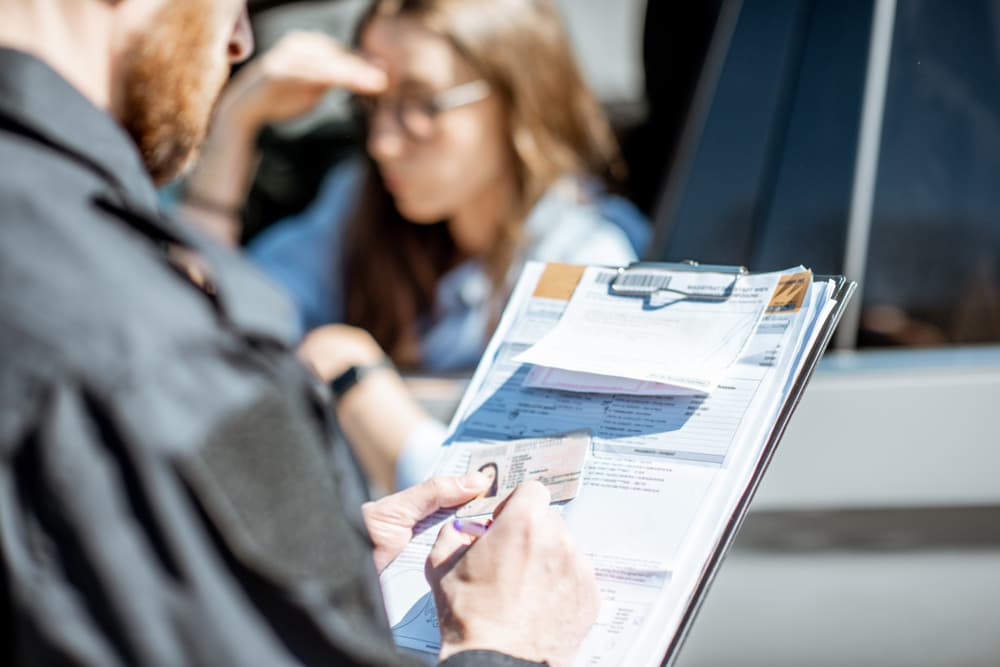
Several factors can lead to the suspension of a CDL in New York. Some of the most common reasons include:
- Accumulation of driving record points: Like standard driver’s licenses, CDL holders accumulate points on their driving records for traffic violations and other infractions. Exceeding the maximum allowable points within a certain period can result in CDL suspension.
- Driving under the influence (DUI): Operating a commercial vehicle under the influence of alcohol or drugs is a serious offense that can lead to CDL suspension or revocation.
- Traffic violations: Repeated or severe traffic violations, such as speeding, reckless driving, or failure to obey traffic signals, can lead to a driver losing their CDL.
- Failure to maintain required documentation: CDL holders must comply with various regulations, including maintaining valid medical certifications, endorsements, and vehicle registrations. Failure to meet these requirements can lead to suspension.
Steps to Appeal a Suspended CDL in New York
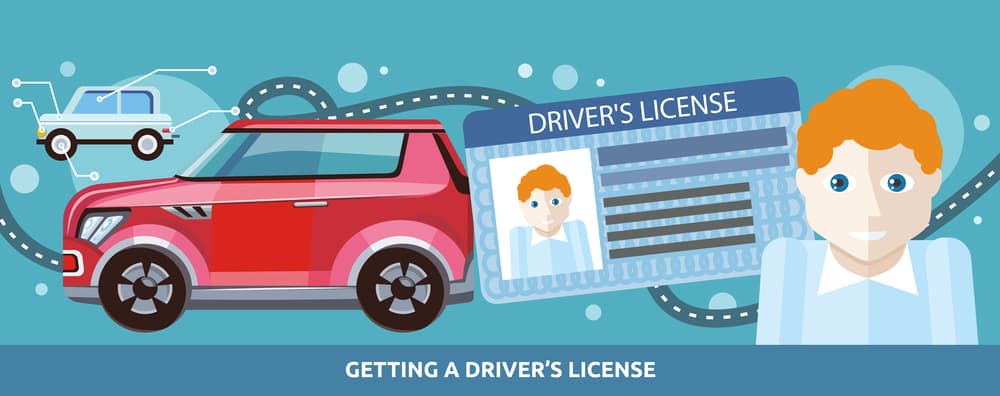
The process of appealing a suspended CDL in New York involves several steps:
- Contacting the New York DMV: Upon receiving notification of CDL suspension, drivers should contact the New York DMV to inquire about the appeals process and request a hearing.
- Obtaining a hearing request form: The DMV will provide drivers with a hearing request form, which they must complete and submit along with any required documentation. Drivers must accurately complete the hearing request form, providing relevant information about the suspension and any supporting evidence.
- Paying any required fees: Some appeals may require payment of fees, which you must submit along with the hearing request form.
- Requesting a hearing date: Once the form and documentation are submitted, drivers must request a hearing date from the DMV.
- Preparing for the hearing: In preparation for the hearing, drivers should gather evidence, review relevant laws and regulations, and consider consulting with a skilled attorney with experience in appealing a suspended CDL in New York.
- Attending the hearing: On the scheduled hearing date, drivers must appear before an administrative law judge to present their case, provide evidence, and respond to any questions.
Possible Outcomes of the Hearing

The outcome of a CDL suspension appeal hearing can vary depending on the circumstances of the case. Possible outcomes include:
The Judge Upholds the Suspension
If the administrative law judge determines that the suspension is justified based on the evidence presented, they’ll uphold it. If that happens, the driver’s CDL will remain suspended for the specified period.
The Judge Overturns the Suspension
The administrative law judge can find insufficient evidence to support the suspension or determine someone violated the driver’s rights during the process. They may overturn the suspension and reinstate the driver’s CDL.
The Judge Modifies the Suspension Terms
In some cases, the judge may modify the terms of the suspension. This modification can mean the judge reduces the duration. However, it can also mean imposing additional requirements for reinstatement.
How a Skilled NY License Suspension Attorney Can Help
Hiring an experienced attorney can increase your chances of successfully appealing a suspended CDL in New York. Skilled lawyers have in-depth knowledge of New York’s traffic laws and regulations and experience representing clients in administrative hearings.
An attorney can help in the following ways:
- Providing legal guidance: A license suspension lawyer can explain the appeals process, advise you on your rights and options, and help you understand the potential outcomes of your case.
- Gathering evidence: Your attorney can gather relevant evidence, such as witness statements, documentation of mitigating circumstances, and expert testimony, to support your case.
- Presenting arguments: During the appeal hearing, a lawyer can present compelling arguments on your behalf, advocating for the suspension to be overturned or modified based on the evidence they present.
- Cross-examining witnesses: An attorney can cross-examine witnesses presented by the DMV or other parties, challenging their testimony and highlighting inconsistencies or inaccuracies.
- Negotiating settlements: In some cases, a lawyer may negotiate a settlement with the DMV or other parties, resolving the appeal without needing a formal hearing.
Skilled attorneys play a vital role in appealing a suspended CDL in New York, advocating for their rights and working towards a favorable outcome.
A New York CDL Suspension Lawyer is Waiting to Tell You More

When appealing a suspended CDL in New York, you need skilled legal representation to have the best chance of achieving a positive outcome. Hiring an experienced New York criminal defense lawyer can be the difference between losing your job and continuing to provide for those you love.
Schedule a Free Initial Consultation Today!
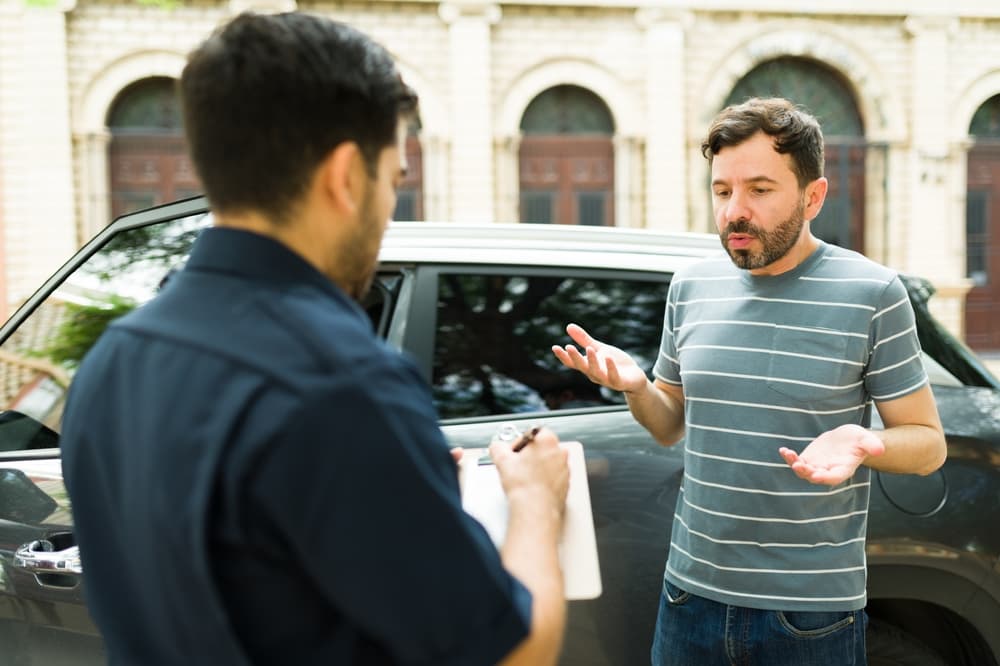
Failure to Respond to a Ticket / Failure to Pay a Ticket in NY
Getting a traffic ticket can be a frustrating experience. However, it’s important to handle it properly. Ignoring a ticket or not paying it on time in New York can lead to serious consequences. In this post, we’ll explore what it means to fail to respond or pay a traffic ticket, the laws surrounding it, the potential consequences, and why hiring a New York State traffic ticket lawyer can be a wise decision.
What Does Failure to Respond or Pay a Ticket Mean?
When you receive a traffic ticket in New York, it means you’re required to either plead guilty and pay the fine or plead not guilty and contest the ticket in court.
Failure to respond means you neither plead guilty nor not guilty within the specified time frame, usually about 15 days. Similarly, failing to pay a ticket means you’ve pled guilty or were found guilty but haven’t paid the fine within the deadline.
The Law in New York
Under New York State law, failing to respond to a traffic ticket or to pay a fine is a violation. The Traffic Violations Bureau (TVB) in New York City typically handles traffic tickets or local courts in other parts of the state. The ticket should clearly state legal requirements and deadlines.
Consequences of Not Responding or Paying a Traffic Ticket in New York
Not responding to or paying a traffic ticket in New York can lead to several significant consequences. These include:
Driver’s License Suspension
Failing to respond to a traffic ticket within the required timeframe can result in the New York Department of Motor Vehicles (DMV) suspending your driver’s license. This suspension means you lose your driving privileges and must go through an administrative process, including paying a fee, to reinstate your license. A suspended driver’s license can greatly affect your daily life, impacting your ability to commute to work or school.
Financial Penalties
Ignoring a traffic ticket or missing a court date can incur additional financial penalties. If your driver’s license is suspended for ignoring a ticket, you must pay a $70 suspension termination fee for each ticket leading to your suspension. This can add up quickly, especially if you have multiple outstanding tickets, and can become a significant financial burden.
Impact on Credit Score
Not responding to a traffic ticket can also affect your credit score. If you fail to pay fines and surcharges, your case might transfer to a debt collection agency, which can negatively impact your credit report. This can make it more difficult to secure loans or credit in the future. Debt collection agencies may also add additional fees and penalties, increasing the overall cost.
Additional Charges and Arrest
Driving with a suspended license due to failing to respond to a traffic ticket is illegal. You can face serious consequences, including criminal charges, fines, and potentially jail time if caught. Responding to your citation and taking the necessary steps to reinstate your driver’s license after a suspension is imperative.
Default Conviction
If you ignore a traffic ticket and fail to respond within the required timeframe, you might be convicted by default. This means you will be found guilty without the opportunity to present your case before a judge. A default conviction can result in fines, points on your driving record, and even the suspension or revocation of your driver’s license. Here is an application to reopen a default conviction if this has happened to you.
Increased Insurance Premiums
Convictions from traffic tickets are reported to the New York State DMV and sometimes to your insurance carrier. Insurance companies often increase rates for customers with moving violations on their records. Your insurance premiums can significantly increase, making it more costly to maintain car insurance.
Why Hire a Lawyer?
Handling a traffic ticket in New York can be more complicated than it appears. Many people might consider dealing with it alone to save on costs, but there are compelling reasons why seeking legal assistance can be beneficial:
Court Representation
Should you choose to contest your ticket, a lawyer experienced in traffic cases knows the court processes and can effectively represent your interests. They are skilled in presenting arguments, questioning witnesses, and providing evidence that may not be apparent to someone without legal training.
Skilled Negotiation of Penalties
One of the benefits of having a lawyer is their ability to negotiate with prosecutors and the court. Often, a lawyer can negotiate reduced fines or alternative penalties, such as attending a defensive driving course instead of direct financial penalties. In situations where license suspension is possible, an attorney might negotiate terms to avoid or minimize this outcome.
Resolution of the Case
A lawyer does more than just handle the immediate issue of the ticket; they look at the broader implications to protect your future interests. This includes considering the impact on your driving record, insurance premiums, and potential employment consequences. By addressing all aspects of the case, a lawyer helps avoid future legal or financial problems arising from an unresolved or poorly managed traffic ticket.
Assurance and Peace of Mind
Dealing with legal issues can be stressful. Having a lawyer handle your traffic ticket case brings peace of mind, knowing that a professional is looking out for your best interests. You can rest assured that someone is following all necessary procedures and meeting deadlines, reducing the anxiety and uncertainty that often accompany legal proceedings.
Personalized Legal Strategy
Every traffic ticket case is unique, and a lawyer can provide a personalized approach to your situation. They can offer advice tailored to your specific circumstances, considering factors like your driving history and the particulars of the alleged violation. This personalized strategy can significantly affect the outcome of your case, ensuring that it is resolved in the most favorable way possible.
Contact a New York Traffic Ticket Lawyer

If you’ve failed to respond to or pay a traffic ticket in New York, it’s wise to address the situation promptly to avoid further complications. Don’t hesitate to reach out today for a consultation.
Schedule a Free Initial Consultation Today!
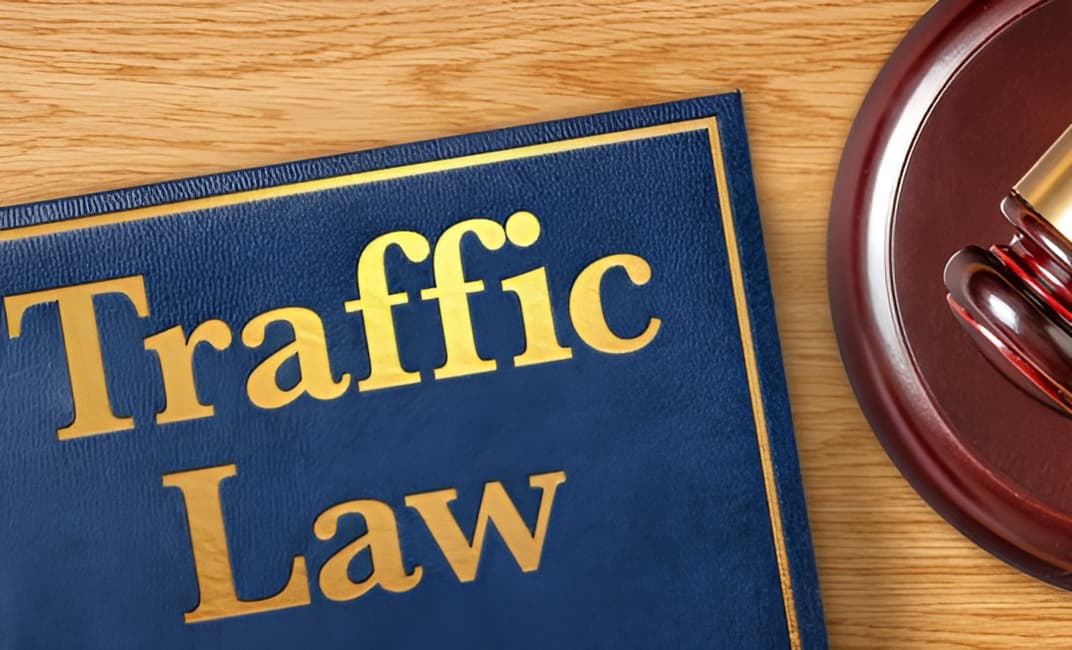
Failure to Appear In NY Traffic Court – VTL 226(3)
If you’ve ever had to deal with traffic court in New York, you know it’s not exactly a walk in the park. Things can get even more tangled if you miss your court date. That’s where understanding Vehicle and Traffic Law (VTL) 226(3) comes into play. This law kicks in when someone doesn’t show up for their traffic court appointment. So, what does this mean for you if you find yourself in this situation? Let’s look at what you need to know and the steps you can take.
What Does VTL 226(3) Entail?
Under New York’s Vehicle and Traffic Law (VTL) 226, significant details are laid out for those who face traffic violations and for what happens if they fail to appear in court or respond to a summons.
Summons and Complaint Process
VTL 226 authorizes the commissioner to establish the form and procedures for summons and complaints related to traffic violations (VTL 226[1]). This framework is essential as it standardizes how traffic violations are reported and processed.
Responding to a Summons
If you receive a summons for a traffic violation, VTL 226 outlines how you can respond:
- Personal Appearance: Generally, you must appear in person on the return date at the specified time and place (VTL 226[2][a]).
- Answer by Mail – Admitting the Charge: If you admit the violation, you can respond by mail using a form provided by the commissioner. This submission includes the form, summons, and if required, a part of your license. Additionally, you must include a check or money order for the penalty amount if it’s stated on the form (VTL 226[2][b]).
- Answer by Mail – Denial of Charges: You can also respond by mail if you deny the charges. You’ll need to complete a form for this purpose and send it with the summons to the specified department office. The department will then enter your response and set a hearing date, notifying you by mail (VTL 226[2][c]).
Failure to Respond or Appear
The statute gets particularly strict when it comes to failing to respond to a summons or appear in court:
- License Suspension: The commissioner may suspend your license or driving privileges if you don’t respond to the summons. In cases involving certain types of violations, the registration of your vehicle can also be suspended (VTL 226[3][a]).
- Pending Suspension: If you fail to appear at a hearing, your license or registration may be suspended pending a subsequent hearing or disposition of the charges (VTL 226[3][a]).
- Security Post and Suspension Termination: You can terminate an existing suspension or prevent an impending one by appearing and posting a $40 security to guarantee your appearance at any required hearing. This security is refundable upon your appearance at the hearing (VTL 226[3][a]).
- Deemed Admission and Fines: Failure to respond or appear as required may be considered an admission to the violation charged. The commissioner can then enter an appropriate order and impose a fine, which may be filed as a judgment. However, you can avoid this by entering a plea or making an appearance within 30 days of receiving notice (VTL 226[3][b]).
Why Does This Matter?
The ability to drive impacts numerous aspects of your everyday routine.
Consider how important driving is to your professional life. For many, commuting to work requires driving. A suspended license can have immediate and severe implications for your income and career.
This situation can escalate into difficulty in meeting financial obligations, such as rent, mortgage, or other essential bills.
Beyond professional life, think about your personal and family responsibilities. Daily tasks, like grocery shopping, attending medical appointments, or ferrying children to school and extracurricular activities, often require a car. A suspension can disrupt these routines, posing significant challenges to managing family responsibilities and maintaining personal relationships.
Also, public transportation may not always be a viable alternative, especially in areas where it’s limited or non-existent. This lack of accessibility can further compound the difficulties in managing both professional and personal commitments.
You should also never underestimate the emotional and psychological impact of losing your driving privileges. The loss of independence and the added stress of figuring out alternative means of transportation can take a toll on your mental well-being.
This is why it’s so important to handle traffic tickets and related court appearances with the utmost responsibility. The consequences of a driving license suspension reach far beyond the inability to operate a vehicle; they ripple out, affecting many facets of your life.
What Should You Do If You Miss Your Court Date?
- Act Quickly: Time is of the essence. The sooner you respond to the situation, the better your chances of resolving it favorably.
- Check Your Status: Verify if your license has been suspended. You can do this through the New York DMV website or by contacting the court.
- Understand Your Options: You may have different options depending on your situation. This can include rescheduling your court appearance or paying a fine.
- Seek Legal Advice: This is where the guidance of a knowledgeable professional can be valuable.
How Can a Lawyer Help?
A lawyer experienced in traffic law can deal with traffic court and the nuances of VTL 226(3). They can:
- Provide Counsel: They know the law and can explain your rights and options.
- Negotiate on Your Behalf: An attorney can negotiate a better outcome with the court.
- Handle Paperwork and Deadlines: They can ensure all necessary paperwork is filed correctly and on time.
Take the Next Step

If you’ve missed your traffic court date and are unsure what to do next, seeking legal advice is wise. A lawyer can assess your situation, guide you through your options, and work towards resolving the issue to minimize the impact on your life. Remember, the sooner you address the situation, the better your chances of a favorable outcome.
Don’t let a missed traffic court appearance complicate your life. Contact a New York State traffic ticket lawyer today to discuss your case and find out how they can help you. Your peace of mind and driving privileges are too important to leave to chance.

Failing to Respond To A Traffic Ticket in NJ
Getting a traffic ticket is a common experience for many drivers. However, what happens if you don’t respond to a traffic ticket in New Jersey? It’s important to understand the consequences and your options. Start by consulting a New Jersey traffic ticket defense lawyer.
Understanding the Statute
In New Jersey, the law mandates a response to a traffic ticket within a specified period. Various statutes and court rules govern this requirement. While no specific statute directly states the obligation to respond to a traffic ticket within a set timeframe, the overall process is set out in Title 39 of the New Jersey Revised Statutes and New Jersey Court Rule 7:12.
Title 39: Motor Vehicles and Traffic Regulation
Title 39 of the New Jersey Revised Statutes covers many motor vehicle and traffic regulations. This title encompasses a range of rules, from vehicle registration to driving under the influence, and is a key source of law for traffic-related offenses in New Jersey.
New Jersey Court Rule 7:12
Rule 7:12, particularly section 7:12-4, outlines the functioning of the Violations Bureau in New Jersey. This bureau is responsible for handling non-indictable offenses, which typically include traffic violations. The rule specifies how the violations clerk can accept appearances, waiver of trial, pleas of guilty, and payments of fines and costs. Importantly, it also addresses the procedures for responding to summonses for traffic offenses.
What This Means for Responding to Traffic Tickets
When you receive a traffic ticket in New Jersey, it’s crucial to respond within the time frame indicated on the ticket, usually within 30 days. According to Rule 7:12-4(d), a person charged with an offense within the authority of the violations clerk may pay the established fines, costs, and penalties either by mail or in person to the violations clerk on or before the return date of the summons. This action is considered a plea of guilty and waives the right to a trial. However, if the summons is marked to indicate that a court appearance is required, payment cannot be made to the violations clerk, even if the offense is on the Statewide Violations Bureau Schedule.
The Consequences of Failing to Respond to a Traffic Ticket in New Jersey
Ignoring a traffic ticket in New Jersey can lead to a series of escalating consequences. It’s not simply a matter of paying a fine later; the legal implications can be much more severe.
Bench Warrant for Arrest
If you fail to respond to a New Jersey traffic ticket, you will initially receive a “Failure to Appear” notice. This notice will give you a new deadline to comply with the instructions. If you disregard this notice, the court may issue a bench warrant for your arrest. This means law enforcement can arrest you anytime, whether at home, at work, or out in public. The warrant will remain active until the court withdraws or discharges it.
Suspension of Driving Privileges
Another consequence of not responding to a traffic ticket is the suspension of your driver’s license. The New Jersey courts will notify the Department of Motor Vehicles to suspend your driving privileges. This suspension is immediate and can affect your ability to renew a driver’s license, even one issued by another state.
Additional Charges and Penalties
Failing to appear in court can escalate the legal issue significantly. It can result in a suspension of driving privileges, issuing an arrest warrant, revocation of bail, and potentially losing the right to have your case heard. For traffic violations, if it’s the first missed court date, a failure to appear notice is sent out, and failure to comply with this notice can lead to an arrest warrant and license suspension.
Financial Repercussions
If you don’t pay the fines and penalties imposed by a New Jersey traffic court, the first step is usually a notice ordering you to appear in court and explain why you haven’t paid. Ignoring this hearing can result in an arrest warrant or suspension of your driver’s license. Additionally, the court can convert unpaid penalties into jail time, including fines and other financial obligations like court costs, Safe Neighborhood Assessments, and Violent Crime Compensation Board payments. The court has the discretion to impose jail time if it deems fit, highlighting the seriousness of not addressing traffic fines and penalties.
The Importance of Taking Immediate Action
If you cannot attend your court date for valid reasons, inform the court immediately and try to reschedule. Ignoring the situation or failing to appear in court can lead to severe consequences.
It’s also advisable to contact a New Jersey traffic ticket attorney, especially if you’re facing challenges in managing the situation. An experienced attorney can assist in fighting the charges and avoiding conviction, and they become even more necessary if a court date is missed.
How a Defense Lawyer Can Help
Consulting with a lawyer is a good first step if you’ve missed the deadline or are overwhelmed. Here’s how a lawyer can assist:
- Navigating Legal Procedures: Lawyers understand the legal system and can guide you through the process of responding to your ticket, even if the deadline has passed.
- Negotiating Penalties: Experienced lawyers can negotiate the penalties or fines, making them more manageable.
- Representing in Court: If your case goes to court, a lawyer can represent you, advocating for the best possible outcome.
What You Should Do
If you have a traffic ticket in New Jersey, here are some steps you should take:
- Respond Promptly: Whether you decide to pay the fine or contest the ticket, make sure to respond within the given deadline.
- Consider Legal Advice: Getting legal advice can be beneficial if you’re unsure about how to proceed or if you’ve missed your deadline.
- Prepare for Court: If you choose to contest the ticket, prepare for your court appearance or have a lawyer represent you.
Contact a NJ Traffic Defense Lawyer

Dealing with a traffic ticket can be stressful, but you don’t have to handle it alone. If you’re facing issues related to a traffic ticket in New Jersey, seeking legal help can make a significant difference. Don’t hesitate to reach out for assistance.
Schedule a Free Initial Consultation Today!

Do I Need To Hire a Traffic Ticket Attorney?
Traffic tickets are not something to take lightly. They can have serious implications for your driving record, your insurance rates, and your wallet. It is best to consult a traffic ticket attorney if you receive a citation for a driving violation.
Schedule a Free Initial Consultation Today!
What Are the Consequences of Traffic Tickets?
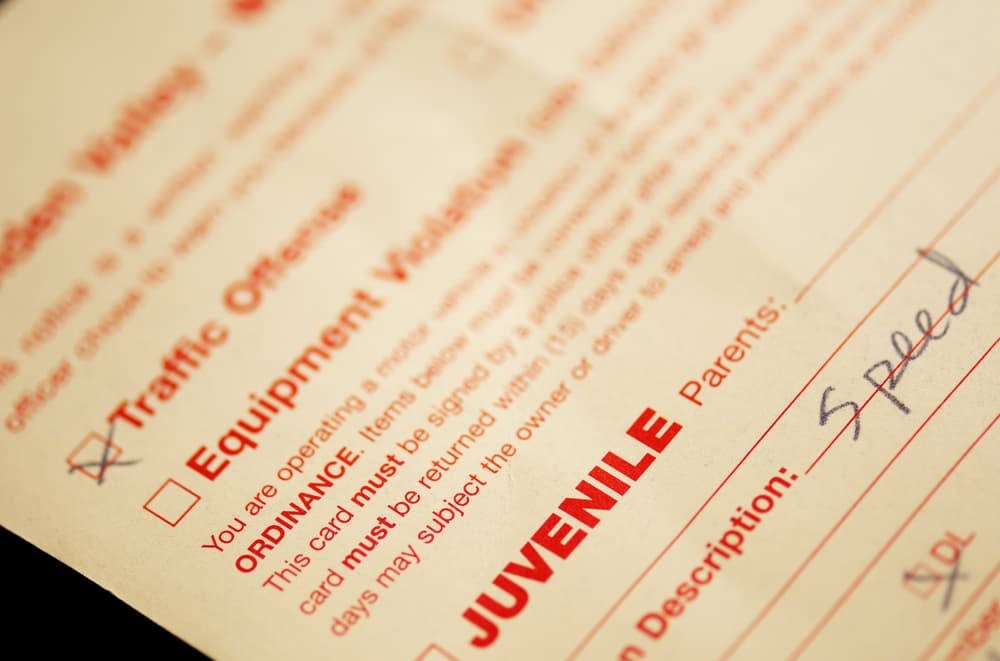
Traffic tickets can have many consequences that extend far beyond the initial fine. Understanding these effects can help you make an informed decision about handling a traffic ticket.
Points on Your Driving Record
Accepting a traffic ticket and paying the fine is often an admission of guilt. This admission typically results in points on your driving record. Each state has its own point system, but the underlying principle is the same: accumulate too many points, and you risk license suspension. These points are a mark against your driving record and can remain there for several years, affecting your driving privileges and presenting an ongoing reminder of your infraction.
Increased Insurance Premiums
One of the most immediate and noticeable consequences of traffic tickets is the rise in car insurance premiums. Insurance companies use your driving record as a key factor in determining your insurance rates. Points on your record signal to insurers that you may be a higher-risk driver. As a result, you can expect an increase in your insurance costs, which can be substantial and long-lasting. In some cases, this cost increase over time can far exceed the original amount of the traffic fine, leading to a significant financial burden.
Potential for License Suspension
Accumulating points on your driving record isn’t just about higher insurance rates; it can also lead to the suspension of your driving privileges. This is particularly true for more serious violations or accumulating multiple infractions over a short period.
Losing your license can profoundly affect your daily life, affecting your ability to commute to work, perform errands, and maintain your social and family commitments. The process of reinstating a suspended license can be both time-consuming and costly.
Risk of Increased Fines and Penalties
While the initial fine associated with a traffic ticket might seem manageable, there can be additional financial penalties down the line. In some jurisdictions, accumulating points can lead to surcharges, additional fines, or even court costs if the matter escalates. For more serious offenses, such as DUI or reckless driving, the financial penalties can be even more severe, including expensive fines and legal fees.
Legal Ramifications and Criminal Charges
Traffic violations can escalate beyond civil infractions and into criminal charges in certain circumstances. This is particularly true for serious offenses such as DUI, hit-and-run incidents, or reckless driving. Facing criminal charges can lead to many legal issues, including the potential for jail time, probation, mandatory driving courses, or community service. The implications of having a criminal record can be far-reaching, affecting employment opportunities, travel options, and overall reputation.
How a Traffic Ticket Attorney Can Help
How can a traffic attorney help?
First, you may not know all the rules and regulations that apply to your case or how to use them to your advantage. A traffic ticket attorney can build a strong defense strategy based on the specific laws and facts of your case.
Second, traffic tickets are not always fair or accurate. Sometimes, the officer who issued the ticket may have made a mistake or violated your rights somehow. For example, they may have used a faulty radar device or stopped you without probable cause. A traffic ticket attorney can spot these errors and challenge them in court, which can result in getting your ticket dismissed.
Third, traffic tickets are not always inevitable or irreversible. Some factors can work in your favor, such as your good driving record, the nature of the offense, or the circumstances that led to the incident. For example, you may have been speeding because of a medical emergency or because your speedometer was broken. A traffic ticket attorney can present these mitigating factors to the judge or the prosecutor and persuade them to reduce your penalty or drop the charges altogether.
Fourth, traffic tickets can have long-term impacts on your life. A traffic ticket can add points to your license, leading to higher insurance premiums or even license suspension. It can also result in a criminal record, affecting your employment, education, and reputation. A traffic ticket attorney can minimize these effects by negotiating for a lower fine, fewer points, or a dismissal. They can also expunge or seal your record, if possible, to prevent it from haunting you in the future.
Of course, not every traffic ticket requires an attorney, but some situations may warrant their counsel. For example, you may want to hire a traffic ticket attorney if:
- You have a commercial driver’s license (CDL): CDL holders face stricter rules and harsher penalties for traffic violations, which can jeopardize their livelihood. A traffic ticket attorney can protect your CDL and your career whenever possible.
- You have a prior record of traffic violations: If you have accumulated too many points on your license or have previous convictions for serious offenses, such as DUI or reckless driving, you may face enhanced penalties or license revocation. A traffic ticket attorney can often eliminate or minimize these consequences.
- You are facing a serious charge: Some traffic violations are considered criminal offenses, such as hit-and-run, vehicular manslaughter, or driving with a suspended license. These charges can carry large fines, jail time, or probation. A traffic ticket attorney can fight these charges and protect your rights.
As you can see, a traffic ticket attorney can be a valuable asset in dealing with a traffic ticket. They can explain the law, challenge the evidence, find the best solution, and reduce the impact on your life. If you ever receive a traffic ticket, don’t hesitate to contact a traffic ticket attorney for a consultation. They may save you a lot of time, money, and trouble.
Taking the Next Step: Seeking Legal Assistance

If you’re facing a traffic ticket, it’s important to consider all your options. An experienced traffic ticket attorney can offer a consultation to discuss the specifics of your case and provide guidance on the best course of action. Remember, the goal is to protect your driving record and financial well-being, and seeking professional help is a step in the right direction.
While hiring a traffic ticket attorney depends on individual circumstances, the benefits of professional legal assistance are clear. An attorney can help mitigate a traffic ticket’s financial and legal consequences, providing peace of mind and potentially saving you money and stress in the long run. If you’re unsure how to proceed with a traffic ticket, contacting a qualified attorney is a sensible first step.
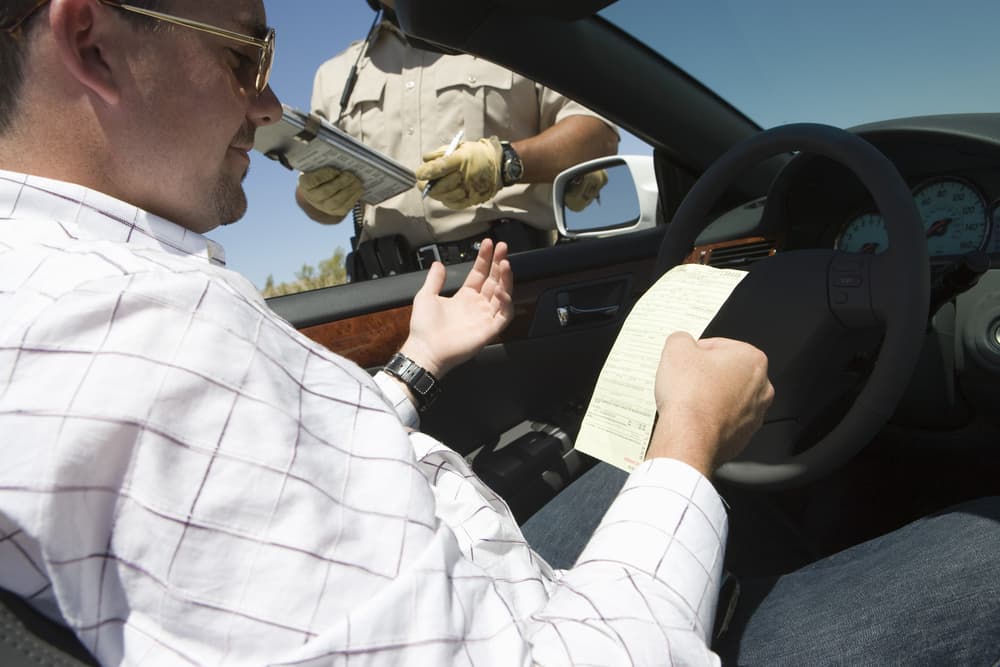
The Real Cost of a NY Traffic Ticket
When you see those flashing lights in your rearview mirror and receive a traffic ticket in New York, it’s easy to think it’s just a minor hiccup, a simple fine to pay. However, the true cost of a traffic ticket in New York can go beyond just a monetary penalty. Let’s go over these consequences one by one and see how having a NY traffic ticket lawyer can make a difference.
Financial Impacts Beyond the Fine
Getting a traffic ticket is never a pleasant experience, but it can seriously affect your wallet. Of course, the most immediate effect of a traffic ticket is the fine, which can vary depending on the type and severity of the violation.
According to the New York State Unified Court System, the mandatory surcharge and crime victim assistance fee for traffic violations in New York are as follows:
- Felony: $300 surcharge + $25 fee = $325
- Misdemeanor: $175 surcharge + $25 fee = $200
- Violation: $95 surcharge + $25 fee = $120
These fees are charged to every convicted defendant, regardless of the court. However, some courts may impose additional fees and civil penalties depending on the nature and severity of the violation. For example, drivers who are convicted of driving while intoxicated (DWI) or driving while ability impaired (DWAI) must pay a driver responsibility assessment fee of $250 per year for three years.
But it doesn’t stop there.
Your car insurance rates may increase as a result of the violation. Insurance companies often view traffic violations as indicators of risky driving behavior, leading to higher premiums for drivers with bad records. This can affect your insurance costs for years to come.
However, you don’t have to accept the ticket and its consequences without a fight.
A lawyer can work to reduce the charges or even get them dismissed, potentially saving you from expensive fines and surcharges. A lawyer can also help avoid points on your license, which can lead to license suspension or revocation if you accumulate too many. By hiring a lawyer, you can protect your rights and your finances from the negative effects of a traffic ticket.
Points on Your Driving Record
In New York, when it comes to understanding the implications of traffic tickets, one aspect that often goes unnoticed is the points system on your driving record. Every time you’re found guilty of a traffic violation, a certain number of points gets added to your record. These aren’t just numbers; they carry significant weight. The New York State Department of Motor Vehicles uses this points system to identify and take action against high-risk drivers.
Different violations carry different points. For a clearer picture, consider a speeding ticket. If you’re convicted of speeding up to ten mph over the limit, that can add three points to your record. The points increase with the severity of the offense. These points start accumulating and, if not addressed, can swiftly add up to a level where they pose a real problem. In New York, if you rack up 11 points within 18 months, this can lead to the suspension of your driving privileges. Imagine the inconvenience and disruption to your daily life if you suddenly find yourself unable to drive.
An experienced lawyer can challenge the points assigned to your violations in several ways. Sometimes, they might argue the specifics of your case, questioning the accuracy of the evidence or the validity of the traffic stop. Other times, they might negotiate to reduce the charges, which can lead to fewer points on your record. In certain situations, they might even get the charges dismissed entirely.
The goal of your lawyer in these circumstances is not just to save you from the immediate inconvenience or fines but to keep your long-term driving record in good standing. This is important because a clean driving record is essential for many aspects of life, from employment opportunities to insurance rates.
For those interested in understanding more about the New York State DMV’s points system, including the specific points for different violations, the New York State DMV website offers a comprehensive and detailed explanation. You can find this information on their official site, and it’s a valuable resource for any driver in New York.
Risk of Getting Your License Suspended
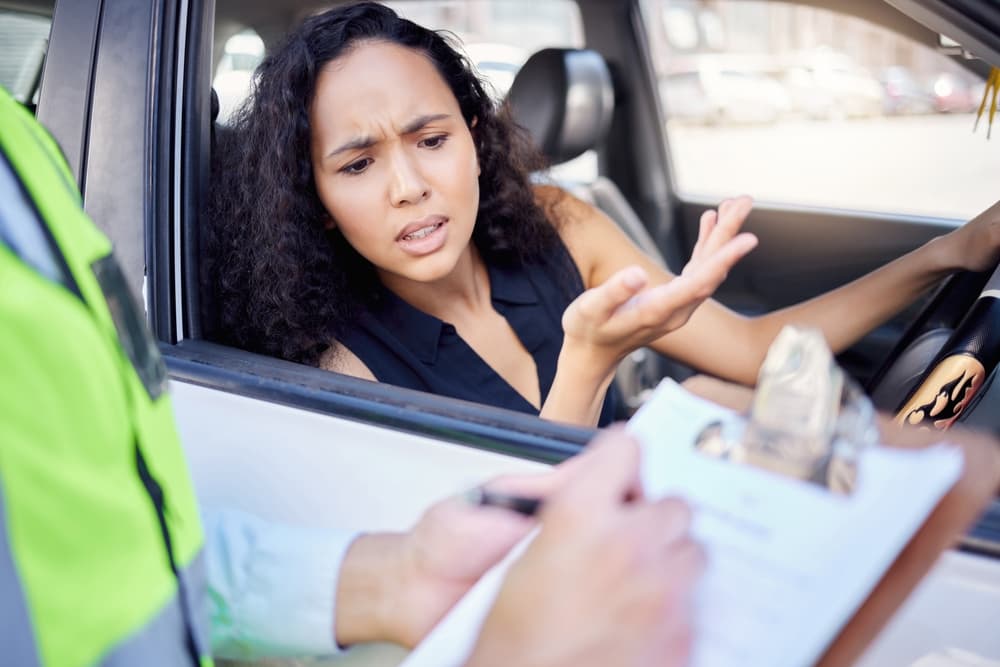
Certain violations, or a series of violations, can lead directly to license suspension or revocation. Losing your driving privileges can disrupt your daily life, affecting your ability to commute, perform job duties, or attend to important personal obligations.
A lawyer can present a strong defense or negotiate alternative penalties that may prevent license suspension.
Employment Consequences
Traffic violations can be particularly troublesome for those whose jobs require a clean driving record. Professional drivers, delivery personnel, or anyone using a company vehicle can face employment consequences. Legal assistance gives you a better chance of keeping your driving record clean, thus protecting your employment status.
Long-Term Effects
In New York, traffic violations can have long-term effects on your driving record and background checks. According to the New York State Department of Motor Vehicles, most traffic violation convictions are displayed on your driving record for three additional years beyond the remainder of the year when the conviction or accident occurred. However, some serious violations, such as DWI or DWAI, can remain on your record for 10 to 15 years or even permanently.
A bad driving record can make you appear less trustworthy, responsible, or reliable to potential employers, landlords, or lenders. It can also affect your eligibility for certain licenses, permits, or certifications. For example, some jobs may require a clean driving record as a condition of employment, or some housing applications may ask for your driving history as part of the screening process. If you have traffic violations on your record, you may face difficulties or disadvantages.
Lawyers can potentially minimize the long-term effects of a traffic ticket on your record.
Need Assistance?

If you’re facing a traffic ticket in New York, remember you don’t have to face it alone. A lawyer can work with you towards the best possible outcome. Reach out to a lawyer for guidance and support in managing the consequences of your traffic ticket and work together to minimize its impact on your life.
Schedule a Free Initial Consultation Today!

What to Do If You Lose Your Traffic Ticket in New Jersey
Losing a traffic ticket can be a stressful experience, especially when you’re unsure what steps to take next. If you find yourself in this situation in New Jersey, don’t worry – there’s a clear path to resolving this issue. This article will walk you through the New Jersey-specific protocol, explain how a New Jersey traffic ticket lawyer can help, and provide the necessary contacts to address your lost traffic ticket.
Schedule a Free Initial Consultation Today!
Step 1: Don’t Panic, Gather Information
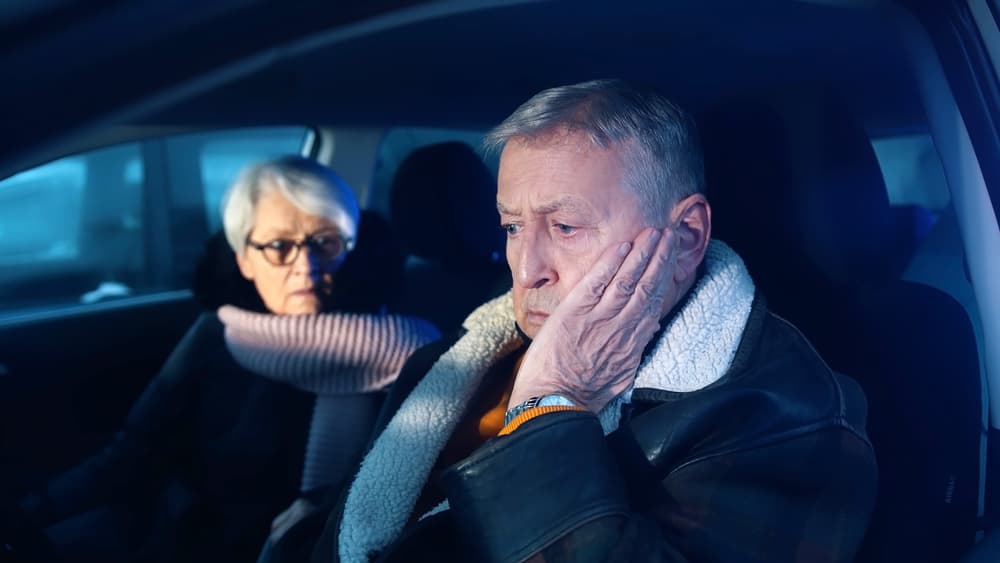
First and foremost, stay calm. It’s important to gather any information you can remember about your ticket. Try to recall the date and location of the offense, the police department involved, and any other details that might be pertinent. This information will be crucial in the steps ahead.
Step 2: Contact the Municipal Court
In New Jersey, traffic tickets are handled by the Municipal Court in the area where the violation occurred. You’ll need to contact the court directly. If you’re unsure which court to contact, you can use the New Jersey Courts website to find the appropriate municipal court based on the location of your violation. When you contact the court, explain that you’ve lost your ticket and provide them with the information you’ve gathered. They can locate your case and give you details about your ticket and any scheduled court dates.
Step 3: Understand Your Ticket and Deadlines
Once you’ve retrieved the details of your ticket, it’s important to understand what you’re being charged with and the deadlines for responding. Traffic tickets in New Jersey typically require you to either pay a fine or appear in court by a specific date. Missing these deadlines can result in additional penalties, so it’s wise to stay on top of them.
Step 4: Consider Legal Assistance
While many people choose to handle traffic tickets on their own, consulting with a lawyer can be beneficial, especially if you’re facing significant charges or have unique circumstances. A lawyer can explain the legal implications of your ticket, advise you on the best course of action, and represent you in court if necessary. They can also assist in negotiating with the court to potentially reduce your charges or penalties.
Step 5: Prepare for Your Court Date or Payment
If you decide to pay the fine, you can usually do this online, by mail, or in person at the court. If you choose to contest the ticket and appear in court, make sure to prepare any relevant documents or evidence you might need. Whether you’re paying or appearing in court, make sure to meet all deadlines to avoid further complications.
Utilize Online Resources for Case Search
The New Jersey Courts offer an online Municipal Court Case Search (MCCS), which is a fast, secure, and convenient way to look up Municipal Traffic or Complaint information online. For this, you will need either your ticket number, complaint number, driver’s license number, or name. The MCCS can be accessed at this link: Municipal Court Case Search.
Accessing Self-Help Resources
New Jersey Courts also provide a self-help section for Municipal Court matters. This section offers various tools and information to assist in managing or resolving municipal court cases. You can find municipal court contact information, frequently asked questions, and other valuable resources. For more information, visit the Municipal Court Self-Help page.
Using the NJMCDirect Ticket System
If you don’t have your ticket number, the NJMCDirect Ticket System can help. You’ll need the court ID number, the ticket number, and your license number. This system allows you to find a traffic or parking ticket, pay fines, plead not guilty, or request a different court date. The NJMCDirect Ticket System is available here: NJMCDirect Ticket System.
Remember the Importance of Timely Action
It’s best to address a lost traffic ticket in New Jersey as soon as possible. Ignoring the issue can lead to additional fines, a warrant for your arrest, or a suspension of your driving privileges. Taking immediate action can prevent these more serious consequences.
How to Prevent Losing Traffic Tickets in the Future
Here are some practical tips on ensuring that your traffic tickets don’t get lost in the shuffle of daily life.
One effective method is to embrace the digital age. Setting digital reminders can be a lifesaver in today’s world, where our phones are almost always within arm’s reach. As soon as you receive a traffic ticket, take a moment to enter the details into your phone’s calendar or a reminder app. Include the due date for your response, whether it’s paying a fine or appearing in court, and set the reminder a few days before the deadline. This digital nudge can help keep you on track.
Organizing paperwork is another step. While digital reminders are helpful, having a physical copy of your ticket in a safe, memorable place is just as important. Designate a specific folder or space in your home for such important documents. It might be a drawer, a file cabinet, or a binder. The key is consistency – always put important documents like traffic tickets in the same place. This way, you know exactly where to look when you need them.
In addition to these methods, the sooner you deal with a traffic ticket, the less likely you are to lose or forget about it. If you decide to pay the fine, doing so immediately can prevent the ticket from getting buried under other paperwork or lost in daily clutter. If you’re contesting the ticket, initiating the process promptly gives you ample time to prepare your case or seek legal advice if necessary.
Need Further Assistance? Consider a Traffic Defense Lawyer

If you feel overwhelmed or uncertain about handling your lost traffic ticket in New Jersey, remember that legal assistance is available. A lawyer can guide you through the process, ensure you meet all legal requirements, and achieve the best possible outcome for your situation.
Remember, losing your traffic ticket isn’t the end of the world. With the right steps and possibly the assistance of a legal professional, you can resolve this issue efficiently and effectively.
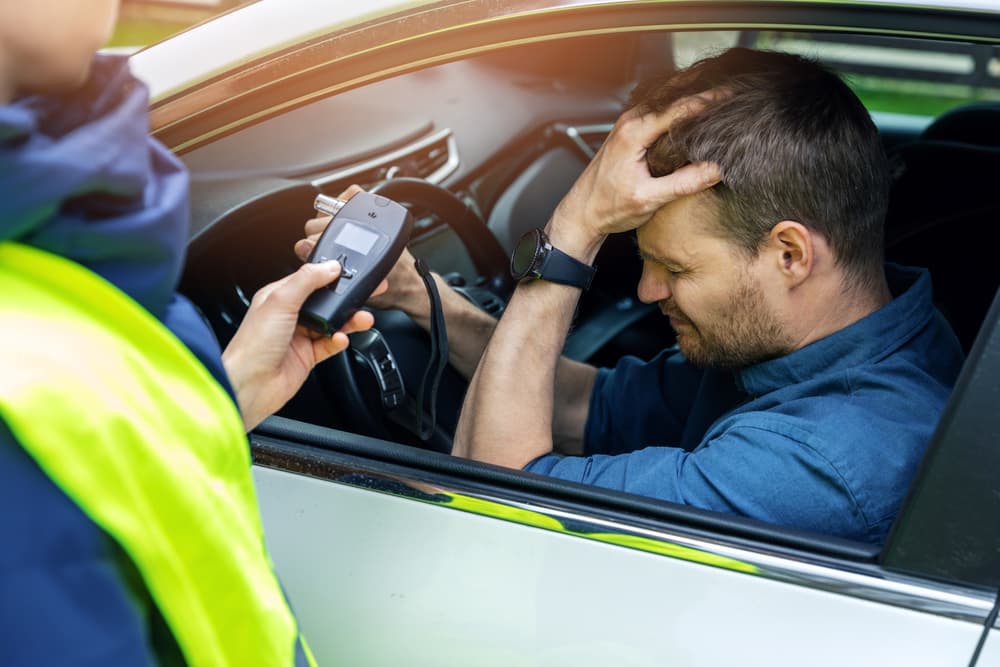
Buzzed Drinking and Driving
If you or someone you know is dealing with a buzzed drinking and driving charge, you need to understand what this means and how it can impact your life. Driving with any level of impairment can lead to serious legal consequences. While the term “buzzed” might sound less serious than “drunk,” in the eyes of the law, it can be just as significant.
If you’re facing legal issues related to DUI/DWI, it’s crucial to consult with a knowledgeable DUI/DWI lawyer who can provide guidance tailored to your situation.
The Charge: What Does Buzzed Driving Mean Legally?
Legally, buzzed driving often falls under the same category as drunk driving. This means if your blood alcohol content (BAC) is at or above the legal limit, which is typically 0.08 percent, you can be charged with driving under the influence (DUI) or driving while impaired (DWI). But remember, even a BAC below this limit can sometimes lead to charges if your ability to drive is affected.
Possible Penalties for Offenders
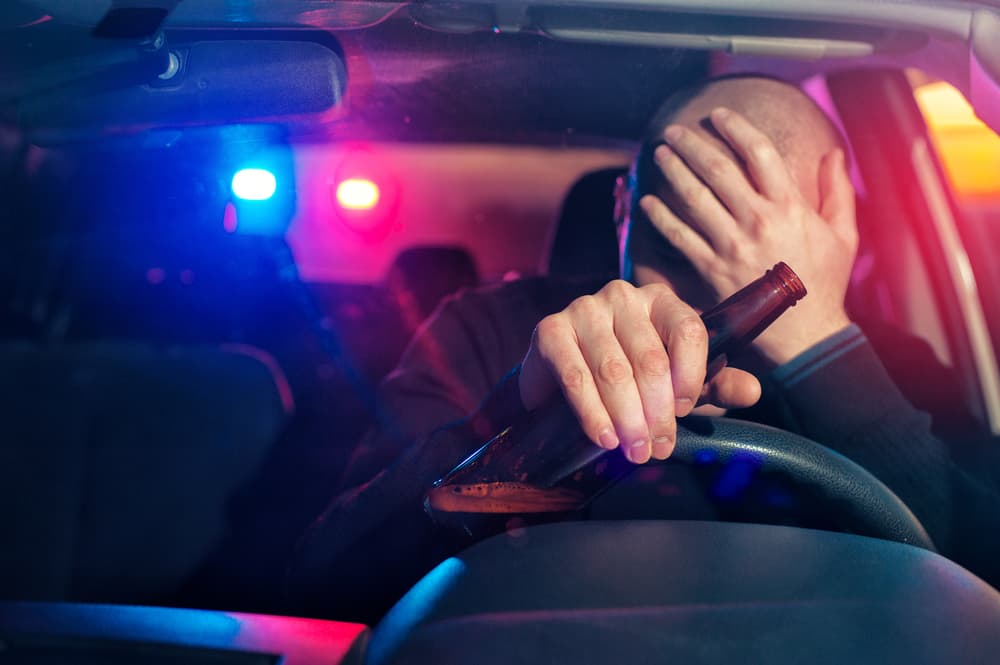
When someone is charged with buzzed driving, the potential penalties can vary widely, depending on several factors, such as the severity of the offense, the jurisdiction, and whether it’s a first-time or repeat offense.
Generally, you may face consequences such as fines, which can range from a few hundred to several thousand dollars. The exact amount depends on the specific laws of your state or locality.
Another common penalty is license suspension or revocation. This means losing the legal right to drive for a certain period, anywhere from several months to a few years. In some cases, a permanent revocation of driving privileges is possible, especially for repeat offenses.
Jail time is also a potential consequence, particularly for more serious cases or repeat offenses. The duration of incarceration can vary from a few days to several years in the most severe instances.
Some jurisdictions mandate participation in educational programs or rehabilitation, especially for first-time offenders. These programs aim to educate about the risks of impaired driving and often include substance abuse evaluation and treatment.
Additionally, community service is a common penalty, requiring people to give a certain number of hours of service to the community.
Probation is another possibility, where you can remain in the community under supervision and certain conditions, like regular check-ins with a probation officer and refraining from alcohol use.
Lastly, there may be an impact on your auto insurance. Often, individuals charged with buzzed driving see an increase in their insurance premiums, sometimes significantly so, as they are considered high-risk drivers.
These penalties can have a long-lasting impact on your life, so seeking legal guidance is advised in such situations.
The Process: From Arrest to Courtroom
You were driving on the highway when an officer pulled you over. Maybe you were swerving, speeding, or running a red light. Maybe you were stopped at a checkpoint. Whatever the reason, the officer suspected that you were impaired by alcohol or drugs. The officer asked you to leave the car and perform some tests. You had to walk in a straight line, stand on one leg, and follow a pen with your eyes. You also had to blow into a device that measured the alcohol level in your breath. The tests showed that you were impaired. The officer handcuffed you and took you to the police station. You were arrested for impaired driving.
Now, you have to face the consequences. Impaired driving is a serious offense. It can result in fines, points on your license, jail time, and more.
The first step is to go to court. There, you will meet the judge, the prosecutor, and your lawyer. The judge will read the charges against you and ask how you plead. You can plead guilty or not guilty. If you plead guilty, you will accept the penalties and end the case. If you plead not guilty, you will challenge the charges and go to trial. The choice is yours, but you should consult your lawyer before you decide.
Going to court can be stressful, but it’s an important part of the legal process. It’s your chance to defend yourself and protect your rights. You should know the facts, the laws, and the options.
You should also know that you are not alone. Some resources and programs can help you deal with the effects of impaired driving. You can learn more about DUI from your lawyer, the court, or NHTSA. Impaired driving is a mistake, but it doesn’t have to ruin your life. You can get through this.
Possible Defenses: Every Case is Unique
When facing a buzzed driving charge, each case carries its own set of circumstances, and accordingly, unique defense strategies can be available. Here are some common defenses.
Challenging Sobriety Test Validity
A common defense revolves around the sobriety tests conducted by the officer. These tests, including field sobriety exercises and breathalyzer tests, must adhere to strict protocols.
A lawyer will often investigate whether these tests were administered properly. For instance, was the officer trained adequately in conducting these tests? Were the field sobriety exercises performed under fair and appropriate conditions? These details matter and can significantly impact your case.
Accuracy and Calibration of Breathalyzer Equipment
The reliability of the breathalyzer equipment is another important aspect of your case. These devices require regular calibration and maintenance to ensure accurate readings. A lawyer can scrutinize the history and condition of the equipment used in your case. If there are any lapses in the device’s maintenance or calibration, this can be a strong point in your defense, potentially questioning the legitimacy of the BAC reading.
Examining the Traffic Stop Justification
The initial traffic stop is another area a lawyer will closely examine. Law enforcement officers must have a legitimate reason, known as probable cause, to make a traffic stop. If this justification is lacking or questionable, it can render the subsequent evidence inadmissible in court. A lawyer will thoroughly review the circumstances leading to your stop to determine if it was legally justified.
Ready to Talk? Contact a DUI Lawyer Today

If you’re facing a buzzed drinking and driving charge, remember you’re not alone. The right legal support can make a significant difference in your case. Reach out to a traffic ticket lawyer as soon as possible to discuss your situation.
Schedule a Free Initial Consultation Today!
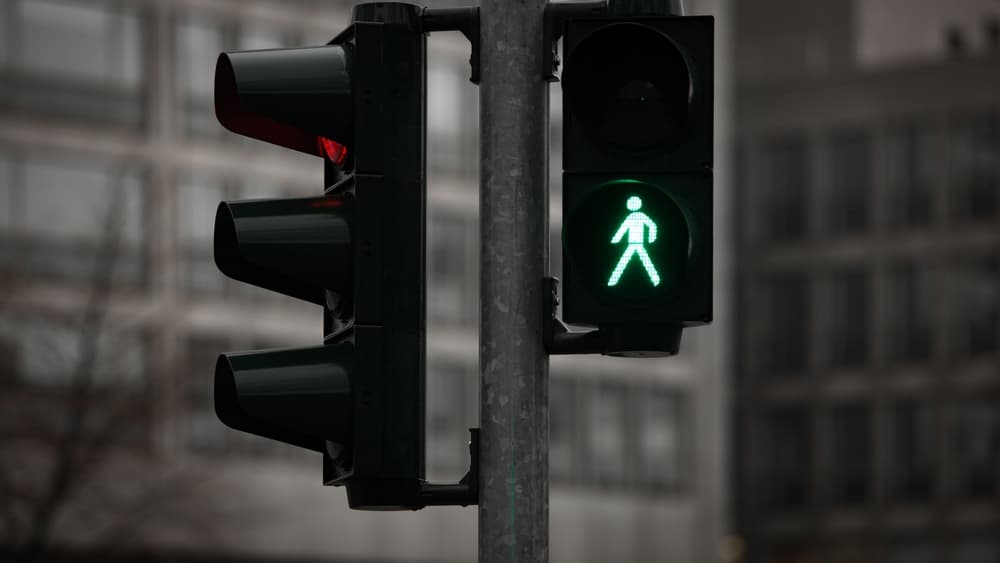
Failing to Yield to a Pedestrian in New York
You were driving in New York City, and you didn’t stop for a pedestrian who had the right of way. Now you have a ticket, and you’re wondering what to do next. Don’t panic. Below, skilled traffic ticket defense lawyers explain the law, the penalties, and how the right legal defense can fight your citation.
Schedule a Free Initial Consultation Today!
Understanding New York’s Yield to Pedestrian Law
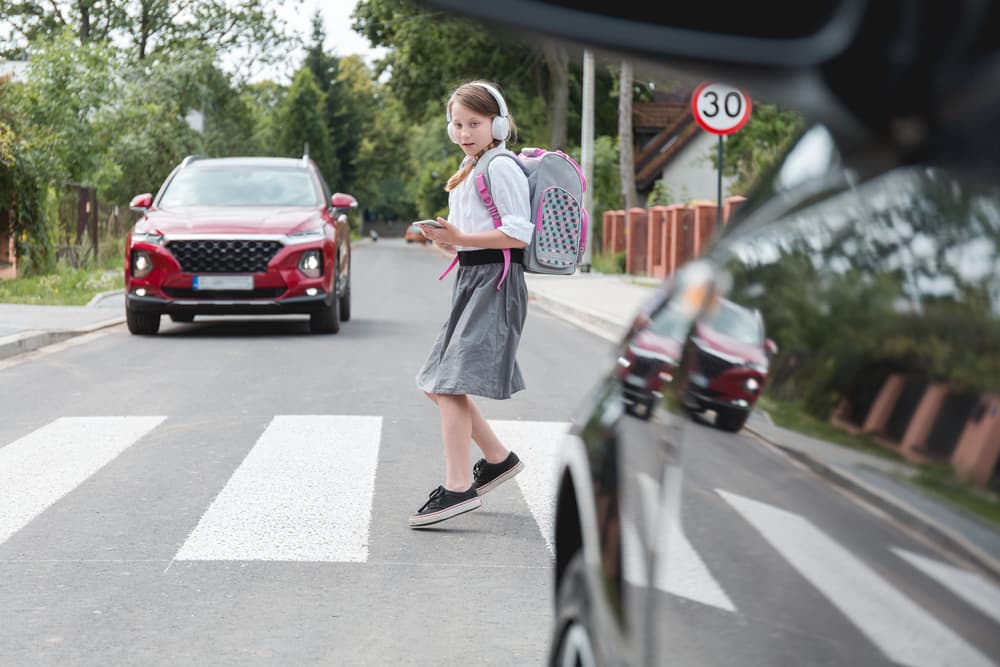
Under New York Vehicle and Traffic Law, Section 1151, drivers have specific obligations to yield to pedestrians:
- In Marked and Unmarked Crosswalks: Drivers must yield to pedestrians in both marked crosswalks and at intersections, which are considered unmarked crosswalks.
- When Pedestrians Have the Signal: At intersections with traffic signals, drivers must yield to pedestrians who have the walking signal.
- During Turns: Drivers making turns must yield to pedestrians crossing in the direction of their turn.
- For Blind Pedestrians: Drivers must exercise extreme caution and yield to blind pedestrians, often identified by the use of a guide dog or a white cane.
- In School Zones and Near Buses: Extra vigilance and yielding are required in school zones and near stopped school buses.
- When Exiting Driveways: Drivers must yield to pedestrians on sidewalks when exiting alleys, buildings, private roads, or driveways.
Consequences of Failing to Yield
If you do not yield to a pedestrian who has the right of way in New York, you can face the following legal penalties:
- Fines: You can be fined up to $150 for a first offense, up to $300 for a second offense within 18 months, and up to $450 for a third offense within 18 months.
- Points on Your License: You can get three points added to your driving record for each violation of failing to yield to a pedestrian. If you accumulate 6 or more points within 18 months, you will also have to pay a Driver Responsibility Assessment fee of $300 plus $75 for each additional point.
- Criminal Charges: If you cause serious injury or death to a pedestrian by failing to yield, you can be charged with a misdemeanor and face up to 15 days in jail, a motor vehicle accident safety course, and a fine of up to $7503. You can also be sued by the pedestrian or their family for damages.
Building Your Defense
You have been given a ticket for failing to yield to a pedestrian in New York. This is a serious offense that can have consequences for your driving record and your wallet. To fight your citation, you need to know the details of what happened and how they affect your case. Here are some questions you should ask yourself:
- Where did the incident happen? The location of the incident can determine who had the right of way and whether you violated the law. For example, if the pedestrian was in a marked crosswalk or at an intersection, you were required to yield to them. If there were traffic signals, you had to follow them and yield to pedestrians who had a green light or a walk signal. If there were no signals or crosswalks, you still had to yield to pedestrians who were on the same side of the road as you or who were close enough to pose a danger.
- What did the pedestrian do? The actions of the pedestrian can also affect your case. If the pedestrian crossed the street in a sudden or unexpected way, such as darting out from between parked cars or crossing against a red light or a don’t walk signal, you may have a defense that you could not avoid hitting them. However, you still have to prove that you were driving carefully and that you tried to stop or swerve to avoid the collision.
- What were the conditions like? The environmental conditions at the time of the incident can also play a role in your case. Factors such as weather, visibility, and road conditions can affect your ability to see and react to pedestrians. For example, if it was raining, snowing, foggy, or dark, you may have a defense that you had no way of seeing the pedestrian or that you had to brake harder or slower to avoid skidding. However, you still have to show that you were driving at a safe speed and that you had your headlights and windshield wipers on if needed.
- How were you driving? Your driving behavior at the time of the incident is a crucial aspect of your defense. You have to show that you were driving cautiously and responsibly and that you did not break any other traffic laws. For example, if you were speeding, texting, drinking, or running a red light, you will have a harder time convincing the judge that you were not at fault. On the other hand, if you were driving at or below the speed limit, paying attention to the road, and following the traffic signals, you will have a stronger case that you did everything possible to avoid hitting the pedestrian.
These are some of the questions you should think about when preparing your defense for a failing to yield citation. Remember, the burden of proof is on the officer who issued the ticket, and you have the right to challenge their evidence and testimony. A citation lawyer can do that and advise you on the best course of action for your situation. Don’t let a failing to yield citation ruin your driving record and your wallet. Contact a citation lawyer today and find out how they can benefit you.
Contact a New York Traffic Ticket Defense Lawyer Today

If you find yourself facing a citation for failure to yield to a pedestrian in New York, don’t hesitate to seek the advice of a citation lawyer to help you understand the law and ensure the best possible outcome for your case, such as a dismissal or reduction of charges. A traffic ticket defense lawyer can also help negotiate lower fines and avoid points on your license.
Courts Reopening Virtually
As we are all becoming acclimated to our new social climate, the Courts have had to adapt as well. While most Courts have reopened, Municipal Court cases in New Jersey are being handled remotely with virtual appearances. We are still provided the opportunity to conference our cases with the Prosecutor in a closed video chat setting and then place the final plea deal on the record in front of a Judge. Courts are implementing this current structure with no definitive end date. Our firm is closely monitoring any changes throughout the State and it will be interesting to see if in-person appearances ever come back to full capacity.
